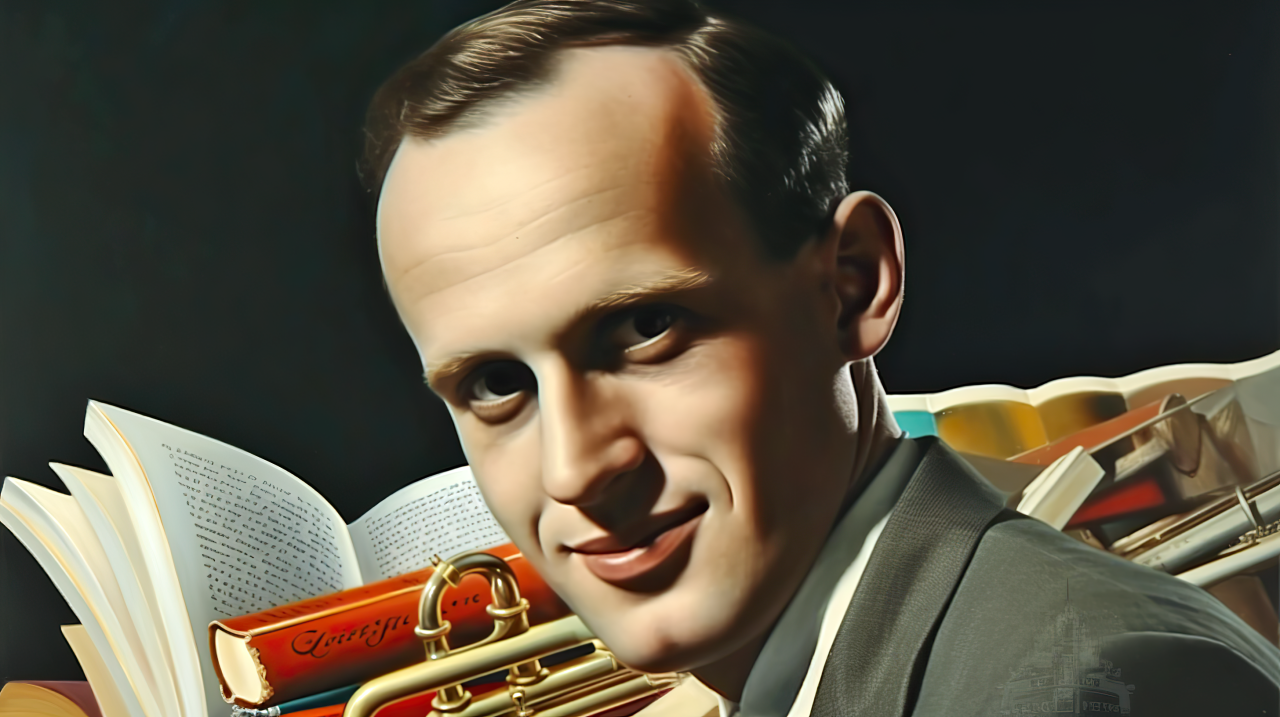
Tribute to Boris Vian
Today I'd like to introduce you to a writer dear to my heart, because it was he who got me interested in literature, and at the time it wasn't easy at all, I can guarantee you. I had my nose constantly in computers and DIY!
In a world that often resembled a monochrome painting, Boris Vian was a splash of bright colours, a kaleidoscope of experience and talent. Born on 10 March 1920 in Ville-d'Avray, a suburb of Paris, Vian was a man who defied the limits of genre and medium. His life was a symphony of words and notes, a tapestry woven from the threads of literature, music, engineering and even activism.
Boris Vian's life was marked from the outset by a sense of duality. He was a brilliant student, studying at the Lycée Hoche in Versailles before enrolling at the École Centrale des Arts et Manufactures, one of France's prestigious engineering schools. However, even though he was immersed in the rigours of scientific study, he was irresistibly drawn to the arts. His family was musical; his father was a wealthy man who also played the violin, and his mother was a pianist. This early exposure to music would become a cornerstone of his life.
In 1940, the dark cloud of the Second World War hung over France. Boris Vian was exempt from military service because of his health, including a heart condition that would later cost him his life. During the Occupation, he became involved in the Resistance, although the details are shrouded in the mists of time and myth. What is certain is that the war years were transformative for Boris Vian, igniting a passion for activism that would manifest itself in various forms throughout his life and make him a very contemporary man.
Boris Vian's literary career began to take shape in the post-war years. His first novel, "L'Écume des jours", published in 1947, was a surrealist masterpiece that explored themes such as love, despair and the human condition. The novel was a critical success but a commercial failure, a pattern that would be repeated throughout his literary career. Boris Vian's writing was often ahead of its time, challenging societal norms and questioning the very fabric of reality. The book was adapted into two films, L'Écume des jours (1968) rated 4.7/10 and the more recent L'Écume des jours (2013) rated 6.2/10 on TMDB.
But Vian wasn't just a writer; he was also a musician at heart. A jazz trumpeter, he was deeply rooted in the Paris jazz scene. In the cellars of Saint-Germain-des-Prés, in the company of Juliette Gréco, Anne-Marie Cazalis, Alexandre Atruc, Claude Luter, Simone de Beauvoir and Jean-Paul Sartre... Le Tabou and then the Club Saint-Germain were his landmarks. He wrote for jazz magazines such as "Jazz Hot", organised concerts and even served as artistic director of a jazz club. His love of jazz was more than just a hobby; it was an extension of his identity, a way of exploring the complexities of human emotion through the language of music.
Boris Vian also wore the hat of a translator, bringing the works of American writers such as Raymond Chandler and the science fiction writer A.E. van Vogt to French audiences. His pseudonymous works, written under the name Vernon Sullivan, were provocative and controversial, tackling issues such as racial discrimination and sexual freedom.
As the 1950s progressed, Boris Vian's health began to deteriorate. His heart condition was worsening, and the stress of juggling several careers was taking its toll. Yet he continued to write, perform and engage with the world around him. His later works, such as 'L'Arrache-coeur' and 'L'Herbe rouge', were darker, more introspective, reflecting his growing disenchantment with society and his own mortality.
Tragically, Vian's life was cut short on 23 June 1959, when he suffered a fatal heart attack at the age of 39 while attending the premiere of the film adaptation of his own novel "J'irai cracher sur vos tombes". It was a poignant and surreal end for a man whose life had been a poignant and surreal fresco. In addition to this first film, J'irai cracher sur vos tombes (1959) rated 5.2/10, a second was made last year, J'irai cracher sur vos tombes » : rage, sexe et jazz (2022) rated 6/10 on TMDB. It's a shame that no better film could have been made of this incredible novel.
In the final analysis, Boris Vian was a man who defied easy categorisation. He was a writer, a musician, an engineer, an activist, a translator, a critic, a poet and much more besides, including sculpture. His works continue to be celebrated, dissected and debated, serving as a testament to a life lived in vivid colour, a life that challenges us to question, explore and engage with the world in all its complexity and beauty.